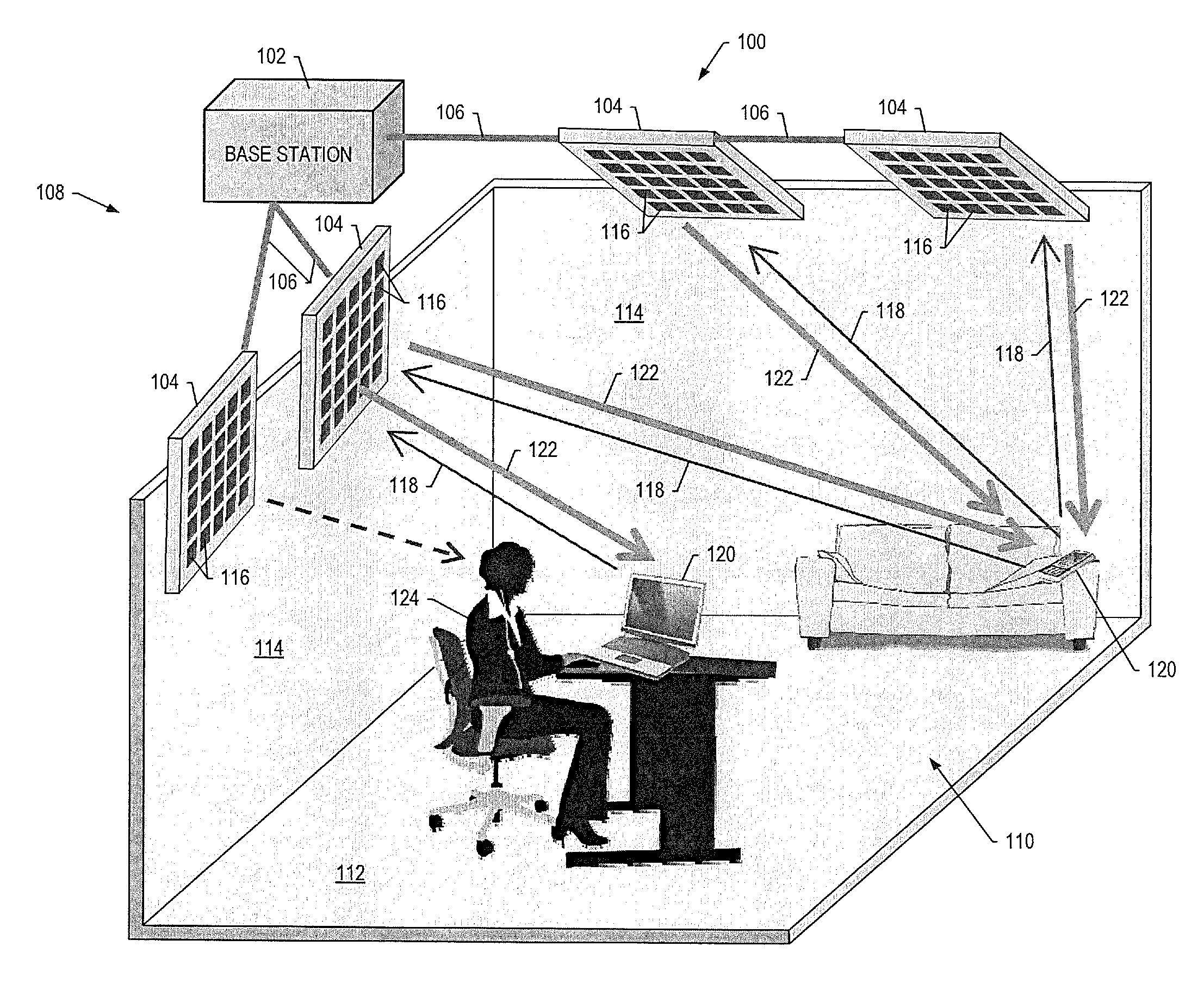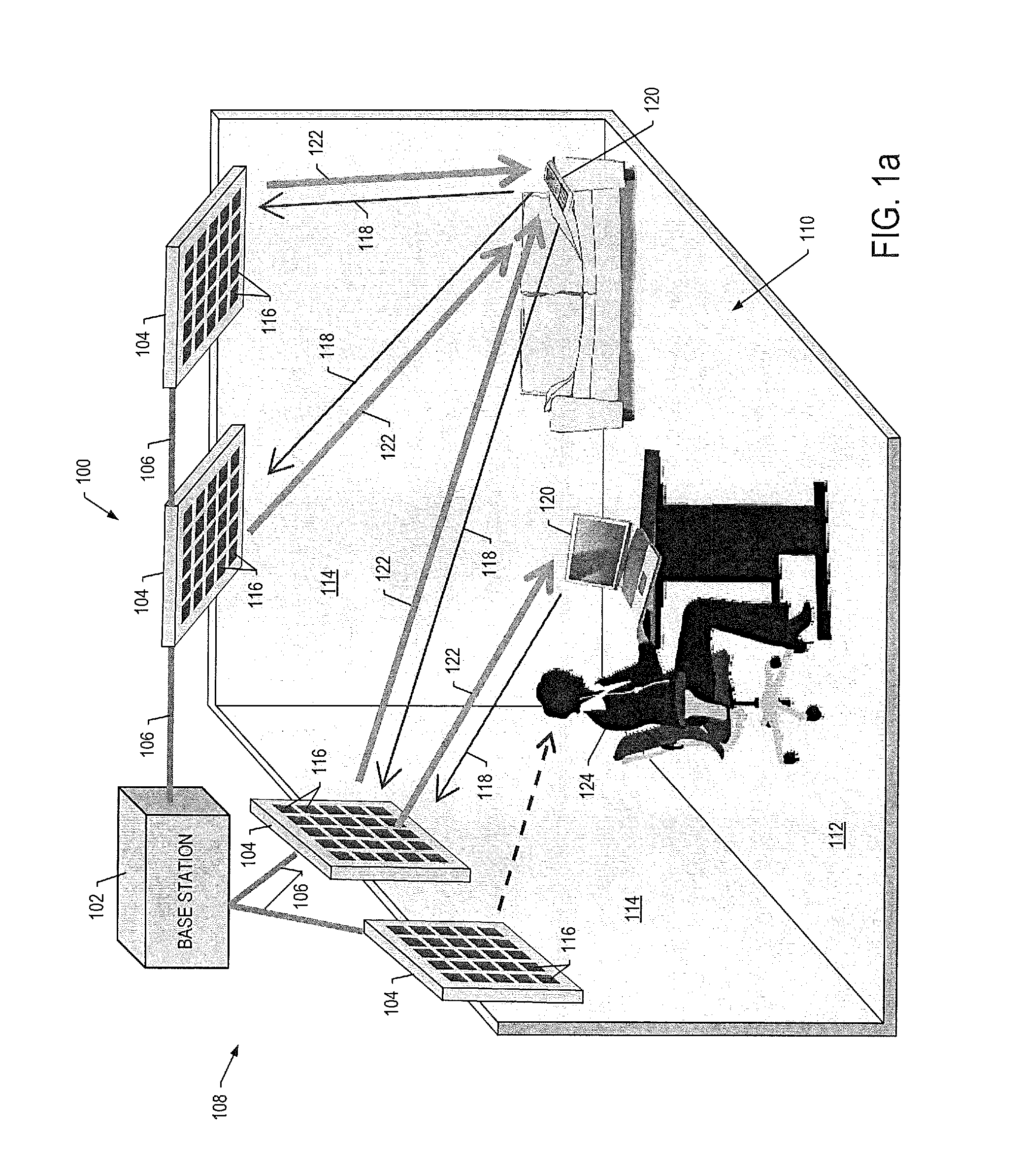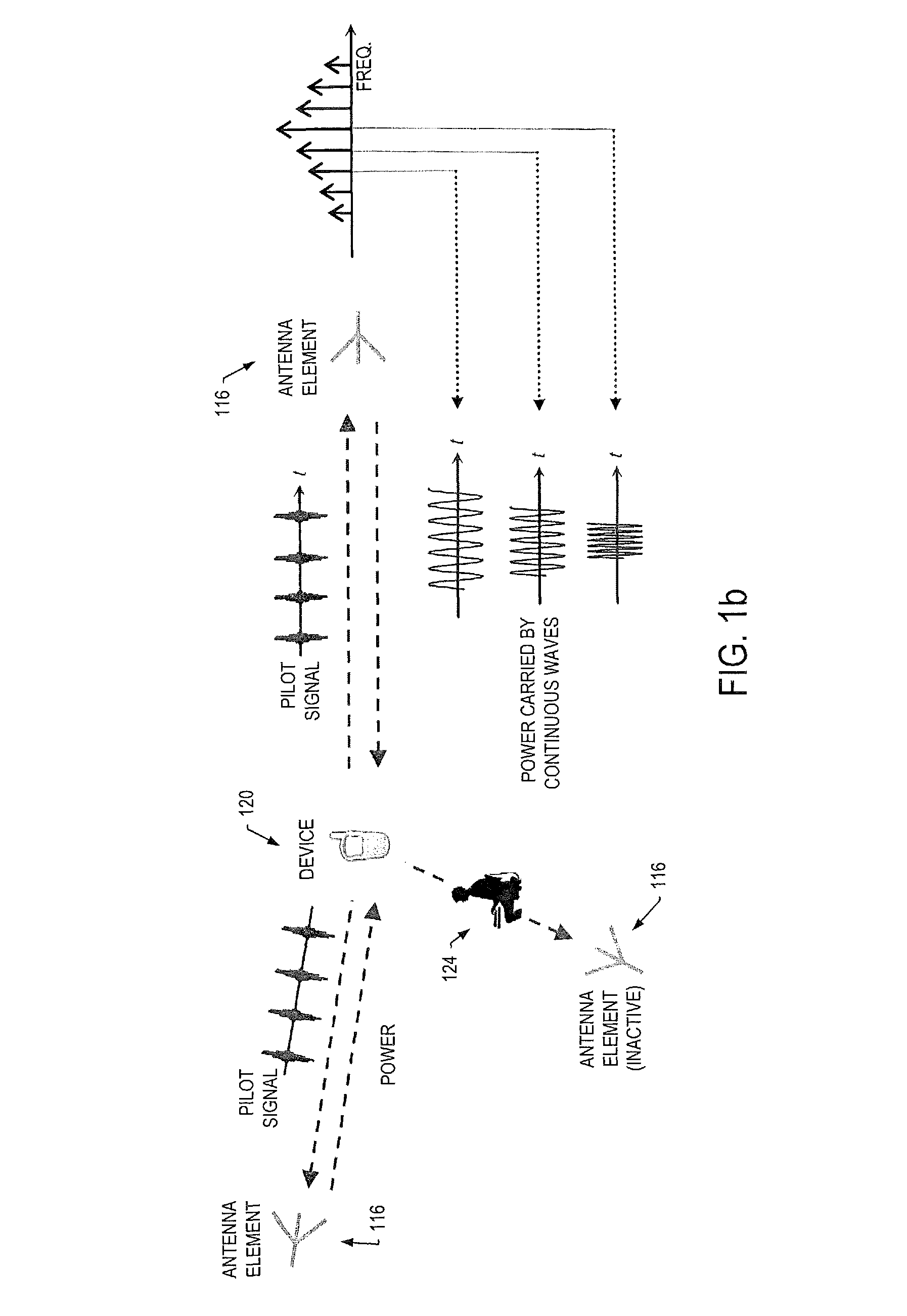Wireless power transmission
a wireless power transmission and wireless technology, applied in the field of wireless power transmission, can solve the problems of large gap between existing technologies and a practical, general-purpose and ubiquitous wireless power transmission system, and the like, and achieve the effects of reducing and increasing the cost of power generation
- Summary
- Abstract
- Description
- Claims
- Application Information
AI Technical Summary
Benefits of technology
Problems solved by technology
Method used
Image
Examples
Embodiment Construction
[0031]Some embodiments of the present disclosure will now be described more fully hereinafter with reference to the accompanying drawings, in which some, but not all embodiments of the disclosure are shown. Indeed, various embodiments of the disclosure may be embodied in many different forms and should not be construed as limited to the embodiments set forth herein; rather, these example embodiments are provided so that this disclosure will be thorough and complete, and will fully convey the scope of the disclosure to those skilled in the art. Like reference numerals refer to like elements throughout.
[0032]FIGS. 1a, 1b and 1c illustrate a system 100 for wireless power transmission in accordance with one example embodiment. As shown, the system includes a base station 102 coupled to a plurality of charging panels 104, such as by appropriate wiring 106. In other instances, the base station and charging panels may be referred to as a central station and base stations, respectively. As ...
PUM
 Login to View More
Login to View More Abstract
Description
Claims
Application Information
 Login to View More
Login to View More - R&D
- Intellectual Property
- Life Sciences
- Materials
- Tech Scout
- Unparalleled Data Quality
- Higher Quality Content
- 60% Fewer Hallucinations
Browse by: Latest US Patents, China's latest patents, Technical Efficacy Thesaurus, Application Domain, Technology Topic, Popular Technical Reports.
© 2025 PatSnap. All rights reserved.Legal|Privacy policy|Modern Slavery Act Transparency Statement|Sitemap|About US| Contact US: help@patsnap.com



